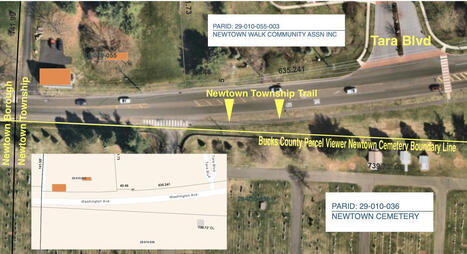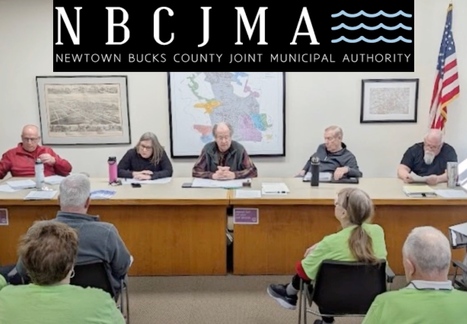`The NBCJMA recently posted this notice to its website:
"The Newtown, Bucks County Joint Municipal Authority (Authority) has decided to halt all work on the proposed wastewater treatment facility. [Listen to the decision here...]
"The Authority had been actively pursuing construction of a brand-new state-of-the-art wastewater treatment facility on a 17.5-acre parcel between the Newtown Bypass and Lower Silver Lake Road. Gaining control of spiraling sewer rate hikes was the impetus for the Authority’s pursuit of this project.
"However, the Authority, during its Tuesday, March 11 board meeting, voted to stop all work on the proposed project. The vote came on the heels of opposition from community members, as well as the Newtown Township Board of Supervisors. [Read the what the BOS demanded...]
"At this juncture, the Authority has no plans to advance this project. In the interim, the Authority retains ownership of the land where the plant had been proposed and will keep the public apprised of any next steps or updates in that regard as they become available. The Authority thanks the public, as well as our customers, for their interest and feedback as it relates to this project."
***********
[As reported 3/25/25 in BCCT]:
A group of locals from the nearby Swan Point neighborhood have been protesting the project for months, speaking at public meetings and imploring local officials to intervene.
While the most recent decision is 'progress,' according to Bill Everett, one of the group's leaders, they haven't crossed the finish line yet.
'We're basically still full steam ahead,' Everett said.
Group members will be readjusting their strategy to focus on securing an official, ironclad cancellation of the project, Everett said.
Once complete, he added, they'll keep an eye on any future development proposals on the land.
'It's all about getting it officially canceled and then we can all go back to our regular lives,' Everett said.






 Your new post is loading...
Your new post is loading...















Related:
Middletown Township also established a task force that will be charged with developing guidelines to clarify what precautions businesses should have in place to be ready to reopen as quickly as is reasonable and safe, as soon as Bucks County reaches Gov. Wolf’s yellow, and ultimately green, criteria. Read “To Reopen Local Businesses, Townships Must Develop Guidelines to Ensure Citizens are Safe. CASE STUDY: Middletown & Sesame Place”; http://sco.lt/5n5C5Y
During the May 13, 2020, Newtown Board of Supervisors meeting via Zoom, I made a case for the Township to start thinking how it can help local businesses to re-open safely during the current and the next phases of COVID-19 restrictions. Several ideas were put forward such as rethinking the Finance Committee's purview, putting together an ad hoc business Task Force, etc. Listen to the conversation here: https://www.johnmacknewtown.info/covidvbus.html
This idea will be discussed in more detail at the May 18, 2020, Special Supervisor Work Session Zoom meeting.